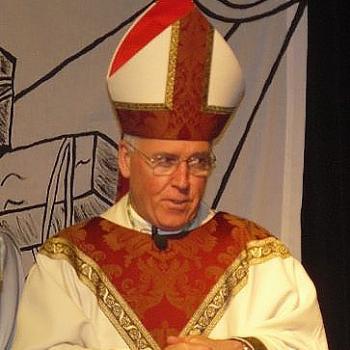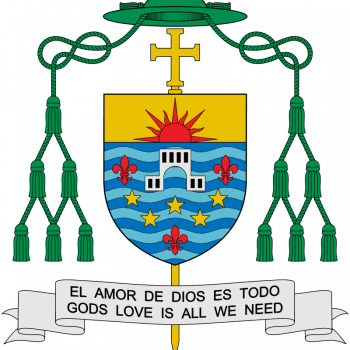A great interview with a great priest: from the National Catholic Register, a chat with Bridgeport’s new bishop, Brooklyn’s own Frank Caggiano:
Please tell us little about growing up and discovering your vocation.
I had a wonderful experience of what I call old-style neighborhoods, where I had perhaps 12 or 14 friends who lived on the same city block I did, and we grew up together. Everyone’s parents knew each other and basically looked out for one another.
I was fortunate to attend Sts. Simon and Jude School. The Sisters of St. Dominic of Kentucky were my teachers — a wonderful, faithful group of woman religious. They began to speak about the possibility of a vocation to the priesthood [for me].
My mother was deeply religious, and she also, very much in her own way, had nurtured the vocation.
My father, on the other hand, was not too thrilled over the idea of the priesthood. My father came [up from being] relatively poor, had built a decent life for us and had very much wanted us to build on what he had done.
I went to Regis High School [a Jesuit college-preparatory school], but I had no desire to be a Jesuit. But their sense of service, teaching, the charism of the Jesuits intrigued me. It kept the vocation idea alive.
That gave great clarity in the end to the fact that, yes, the Lord was calling me to this. It was what I needed to do if I really wanted to be happy and make a difference.
I entered the major seminary and have not looked back since. It’s been a wonderful life. It’s not always been easy, but it’s been a wonderful life.
If you asked me the factors for the vocation, in addition to the inspiration of the Holy Spirit, which is a given, it was the witness of the religious that I had in my life and the nurturing prayers of my mom. Since yesterday was the feast of St. Monica, it resonates very much in my mind: the importance of parents in fostering vocations.
The neighborhood was overwhelmingly Catholic, which meant there was a culture to life, a rhythm to life that taught, even if you were not sitting in a religion class.
Because we were overwhelmingly Italian in the neighborhood, there was a rhythm to the festivals, the street fairs, the holy days, the Sunday meal and the patron saints people had devotion to — even to the point they’d put statuary in their back yards and front yards.
That culture is gone in many places. But that, in many ways, teaches the faith as effectively or more effectively than intellectually teaching the faith, which comes in a classroom.
So we had great advantages growing up that way. These young people don’t have those advantages.
They have to encounter the person of Jesus Christ and fall in love with him. … So part of the outreach to young people is to create a contemporary culture of Catholicism that resonates with their experience and can help them to be formed, not just educated. Education is not enough. It is formation that we need to do.
Then this also ties into today’s major problems in the culture and world.
If the Church were united, and Catholics were really alive, on fire with their faith, much that society is proposing would not even be proposed. But politicians sense that the Church leadership may be united in teaching, but many Catholics do not necessarily follow what the Church is teaching.
We have to ask the Holy Spirit to really bring a new fire into the lives of believers.
Witness is the most powerful method of conversion. Not confrontation. Witness. If Catholics by the millions were able, in every walk of life and in every community, to clearly witness to the fullness of the faith that rises like the person of Jesus Christ, whose mystical presence is the Church in the world, society would be taking a whole different trajectory.
Read it all. He’s the real deal.











